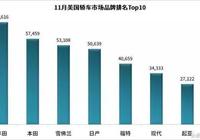Hospitals and a new generation of medical tourism companies are luring well-heeled Chinese patients away from an overburdened health care system.——《The New York Times》2017.5.29
海外醫院和新興的醫療旅行公司,正在招引有錢的中國病人離開不堪重負的中國醫療系統。——《紐約時報》2017.5.29
紐約時報(The New York Times)是一家日報,於1851年創辦,是美國嚴肅報刊的代表。由於風格古典嚴肅,它有時也被戲稱為“灰色女士”。近日,紐約時報對厚朴方舟及其客戶郭先生進行了採訪報道,內容如下:
BEIJING — China’s medical system could not stop the cancer eating at Guo Shushi’s stomach. It roared back even after Mr. Guo, a 63-year-old real estate developer, endured surgery, chemotherapy and radiation at two hospitals.
北京——中國的醫療系統無法阻止癌症侵蝕郭先生的胃。在這名現年63歲的房地產開發商輾轉兩家醫院,經受了手術、化療和放療之後,癌細胞捲土重來。
Then his son-in-law discovered online that — for a price — companies were willing to help critically ill Chinese people seek treatment abroad. Soon Mr. Guo was at the Dana-Farber Cancer Institute in Boston, receiving a new immunotherapy drug, Keytruda, which is not available in China. In April, nearly four months later, his tumor has shrunk and his weight has gone up.
他的女婿隨即在網上發現,一些公司願意——以不菲的價格——幫助身患重病的中國患者去海外求醫。很快,郭先生到了波士頓的丹娜法伯癌症研究院(Dana-Farber Cancer Institute),得以使用一種在中國找不到的免疫療法新藥——吉舒達(Keytruda)。將近四個月後,也就是今年四月,他的腫瘤縮小了,體重也增加了。
“When I arrived, I could feel how large the gap was,” said Mr. Guo of the difference in care.
“來的時候,感覺差距是非常大,非常大,”郭先生談及醫療方面的差異時說。
The cost: about $220,000 — all paid out of pocket.
花費約為22萬美元——全要自掏腰包。
China’s nearly 1.4 billion people depend on a strained and struggling health care system that belies the country’s rise as an increasingly wealthy global power. But more and more, the rich are finding a way out.
中國已經崛起為一個日益富裕的大國,將近14億中國人所依靠的卻是一個不堪重負、勉強維持的醫療體系,這讓其崛起黯然失色。但漸漸地,富人們找到了一條出路。
Western hospitals and a new group of well-connected companies are reaching for well-heeled Chinese patients who need lifesaving treatments unavailable at home. The trend is a twist on the perception of medical tourism as a way to save money, often on noncritical procedures like dental work and face-lifts. For these customers, getting out of China is a matter of life or death.
西方醫院以及新湧現的一批掌握豐富資源的公司,正向一些中國富人伸出橄欖枝。這些人需要接受國內醫療機構無法提供的治療,以保住性命。此種趨勢讓為了省錢而進行醫療旅行——通常是做些並非危重的處理,比如看牙或整容——的看法發生了轉變。
Medical care is just one manifestation of China’s wide wealth disparity. A new generation of affluent Chinese can seek help at private hospitals or go abroad, even as the rest endure long waits and find their treatment falling short.
醫療問題只是中國巨大貧富差距的一個縮影。新一代富有的中國人可以到私立醫院或國外尋求幫助,其他人卻不得不忍受漫長的等候,而且無法得到應有的治療。
Chinese people took an estimated 500,000 outbound medical trips last year, a fivefold increase from a year earlier, according to Ctrip.com International. While the bulk of that is focused on plastic surgery and routine examinations, medical travel agencies say the number of critically ill Chinese patients leaving the country for medical treatment is growing.
根據攜程旅行網的數據,去年,中國人出國看病的總數為50萬人次左右。一些醫療旅行中介稱,其中大多數旅行都聚焦於整形手術和常規檢查,但出國求醫的危重病人數量正在增長。
“China is among the countries where we have seen the greatest growth in recent years,” Dr. Stephanie L. Hines, the chairwoman of executive health and international medicine at the Mayo Clinic, said in an email.
“據我們所見,來自中國的患者是人數增長最快的群體之一,”梅奧診所(Mayo Clinic)高管健康保障項目和國際醫藥部門負責人斯蒂芬妮·L·海恩斯(Stephanie L. Hines)在電子郵件中表示。
At Massachusetts General Hospital in Boston, employees help patients with travel and lodging. Mass General, Mayo Clinic and Boston Children’s Hospital provide interpreters.
在波士頓的麻省總醫院(Massachusetts General Hospital),有僱員為患者提供旅行和住宿方面的幫助。麻省總醫院、梅奧診所和波士頓兒童醫院(Boston Children’s Hospital)均提供翻譯。
△患癌症赴美求醫的中國公民郭淑師,在厚朴方舟波士頓的一套公寓內,治療期間他一直住在那裡。(託尼·盧對
Mr. Guo is one of more than 1,000 patients that one company based in Beijing, Hope Noah Health Company, says it helped last year — a number it says was double that of the year before. Upon arriving in the United States or Japan, the two countries to which Hope Noah sends people, patients are greeted at the airports by Hope Noah employees and whisked off to a rented apartment. When they head to the hospital, a Hope Noah translator is by their side.
北京的一家名為厚朴方舟的公司稱,他們去年幫助過1000餘名患者——這個數字比前一年多了一倍——郭先生是其中之一。厚朴方舟會把病人送到美國或日本,病人一抵達這兩個國家,該公司的僱員便會在機場迎接,並將其送到一套租來的公寓裡。病人去醫院時,厚朴方舟的一名翻譯會隨侍左右。
As recently as the 1970s, China’s health care system provided cradle-to-grave medical support. But despite a huge health care reform plan, its public hospitals are overburdened, with too few beds and doctors to deliver the kind of care that many in the West take for granted. A 2015 study by The Lancet based on United Nations criteria found that China ranked 92 out of 188 countries, after Cuba and Mexico.
近至1970年代,中國的醫療體系還提供著從搖籃到墳墓的醫療支持。儘管該國實施了一個龐大的醫療改革計劃,但其公立醫院目前依然不堪重負,床位和醫生都太少,難以提供被很多西方人視為理所當然的那種醫療服務。《柳葉刀》(The Lancet)在2015年按照聯合國相關標準開展的一項研究顯示,以居民健康狀況論,中國在188個國家裡排名第92,位於古巴和墨西哥之後。
The government has increased spending and encouraged private investors to address the problem. A total of about 4.3 million cancer cases were diagnosed in China in 2015, or almost 12,000 cases a day, compared with 2.4 million in 2010, according to the state-run news media. The five-year survival rate of Chinese cancer patients is around 30 percent, compared with about 70 percent in the United States, according to China’s National Cancer Prevention and Research Center.
為了解決這一問題,中國政府正增加投入,並鼓勵私人投資者參與其中。據官方媒體報道,2015年,中國共有430萬人被確診罹患癌症,也就是說,每天確診約1.2萬例,相比之下,2010年的數字是240萬人。根據中國國家癌症中心的數據,中國癌症病人的五年存活率約為30%,而美國的這一數字是70%左右。
Patients often have to travel to Hong Kong and Macau — regions of China governed by their own laws — to buy foreign drugs, which on the mainland face an approval process that takes three to five years. The drug that Mr. Guo is using, Keytruda, was approved for use only last year in a medical tourism pilot zone in the southern Chinese island of Hainan.
患者常常不得不到香港和澳門——即適用它們自己的法律的兩個中國地區——購買外國藥物,在內地,那些藥物要等三至五年才能走完准入程序。郭先生正在使用的藥物吉舒達,直到去年才獲批在海南島的一個醫療旅遊試點區使用。
In top public hospitals in the top-tier Chinese cities, lines begin forming just after midnight. Appointments for the best doctors are snapped up before dawn. For those who can afford it, tickets can be bought from scalpers hawking appointment numbers. In March, the authorities in Beijing said that they would bar public hospitals from imposing consultation fees on patients, in a bid to reduce public discontent.
在中國一線城市的頂級公立醫院裡,午夜剛過就有人排隊。頂尖醫生的預約號在清晨之前便被會搶奪一空。有經濟能力的人可以從黃牛處買預約號。北京當局今年三月稱,將禁止公立醫院收取診療費,試圖以此緩解公眾的不滿情緒。
By contrast, Mr. Guo said his experience at Dana-Farber was “more humane.” Mr. Guo’s doctor let him speak. There was easy access to food and beverages. The waiting area had a couch.
相比之下,郭先生在丹娜法伯癌症研究院的體驗“更為人性化”。郭先生的醫生讓他充分表達想法。食物和飲料易於獲取。等候區設有長椅。
“In China, the most that we can get is a metal chair,” he said, speaking by videoconference from his apartment in Boston. “Even having a cup of hot water is inconvenient.”
“中國,我們最多是一個鐵椅子,”他在位於波士頓的公寓裡參加視頻會議時說。“連喝個熱水都很不方便。”
But the benefits can be fleeting. “The biggest challenge that we’ve had is ensuring continuity of care when the patient returns back home to China,” said Misty Hathaway, who leads Mass General’s Center for Specialized Services.
但患者可能無法長久享有這些好處。“我們面臨的最大挑戰,就是在病人回到中國以後確保治療的連續性,”麻省總醫院特殊服務部(Specialized Services)負責人米斯蒂·海瑟薇(Misty Hathaway)說。
△31歲的趙曉青,在南京的辦公室。她把她5歲的女兒帶到德國進行質子治療。 (紐約時報Patrick
It has caused a lot of problems. Many patients go overseas, and indeed, for several months, it’s good。But when they return, if their treatment can’t keep up, then it’s useless.”
所以就是導致很多問題,很多患者去海外了,確確實實在了一兩個月內,兩三個月內還算不錯,但是回來了以後,其他的治療如果跟不上,一點用沒有。
Last November, Zhao Xiaoqing, 31, a bridge designer in the Chinese city of Nanjing, took her 5-year-old daughter, Kefei, to the Essen University Hospital in Germany to get proton therapy treatment for her child’s brain tumor. The treatment is available in Shanghai only for children 14 and above. She spent about $140,000, more than half of that borrowed from relatives.
住在南京、現年31歲的橋樑設計師趙小晴,去年曾帶著患有腦瘤的五歲女兒菲菲,到德國的埃森大學醫院(Essen University Hospital)接受質子治療。在上海,這種療法只面向14歲及以上的孩子。她花了大約14萬美元,超過一半都是從親戚那裡借來的。
Kefei’s tumor shrank. Ms. Zhao said she was willing to spend double what she had paid.
菲菲的腫瘤縮小了。趙小晴說,即便讓她花費多一倍的錢她也願意。
“After going abroad, you can see that the middlemen are not exaggerating,” she said. “In fact, what they’ve told us pales in comparison to what we’ve experienced.”
“去過以後你就覺得其實中介沒有誇張,”她說。“它甚至說的還沒有我們體驗的好。”
後記
文中我們的客戶郭先生,在經過5次免疫治療後,PET-CT影像結果顯示肺部腫瘤組織持續減小或將消失。胃部原發腫瘤得到明顯有效控制。目前患者回國進行休息調整,以待用更好的狀態來面對接下來的治療。
原題:China’s Ill, and Wealthy, Look Abroad for Medical Treatment
作者:黃瑞黎(Sui-Lee Wee)




















